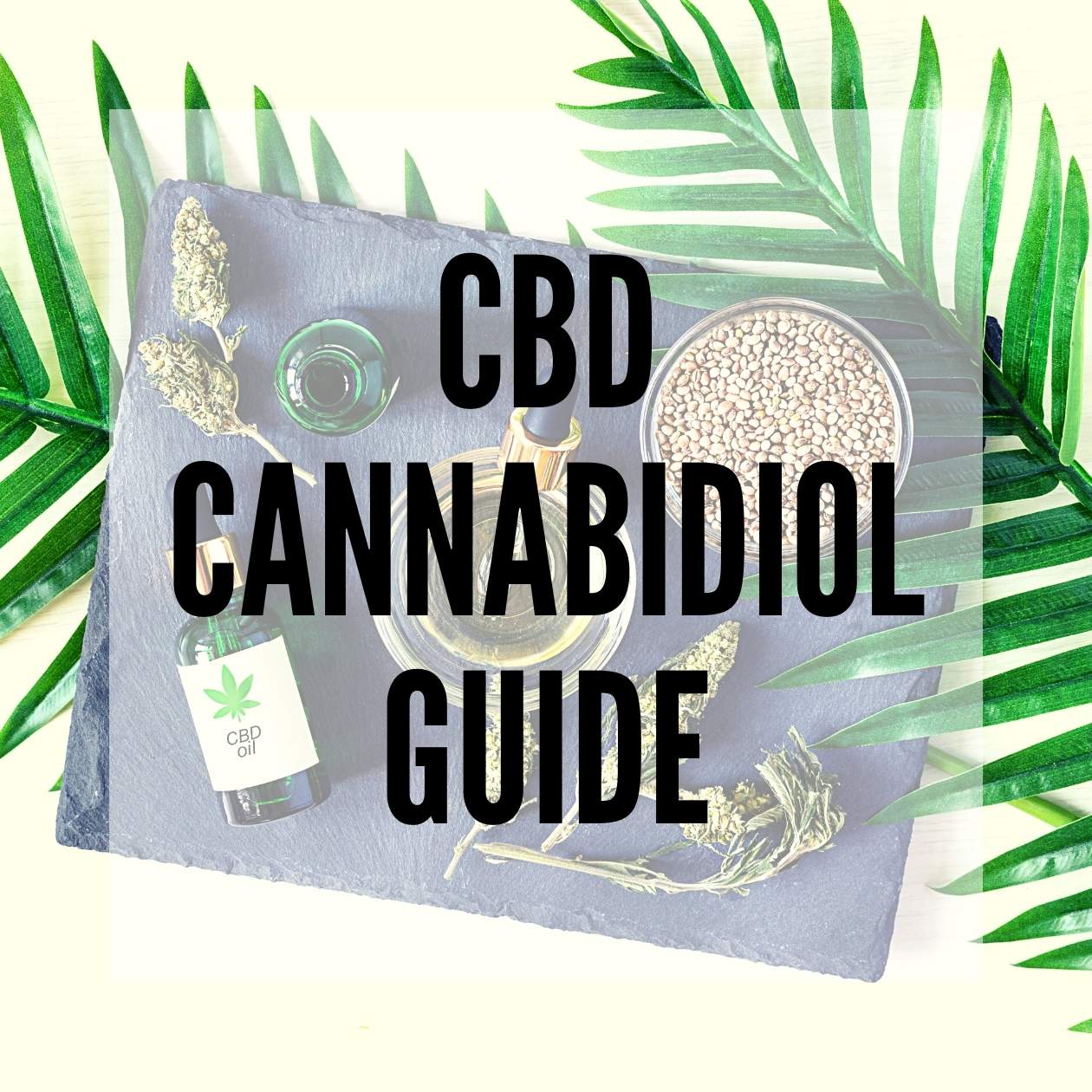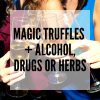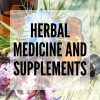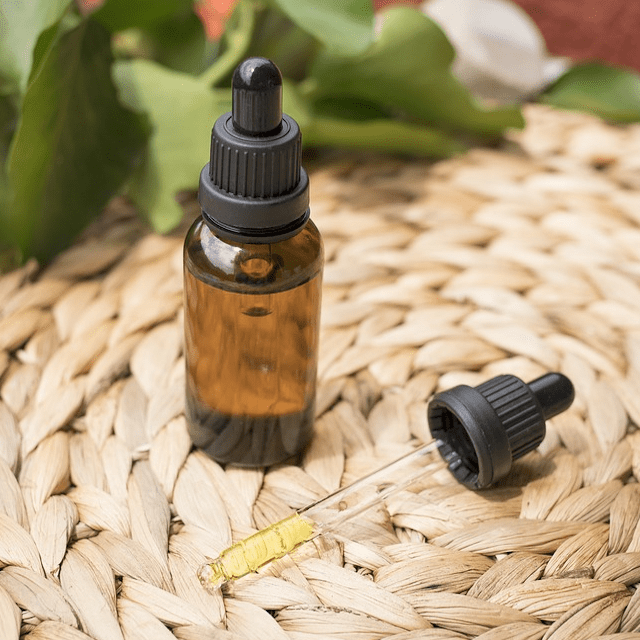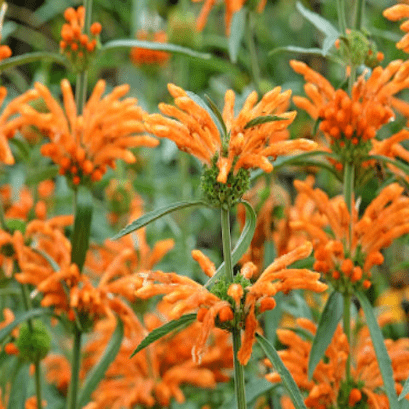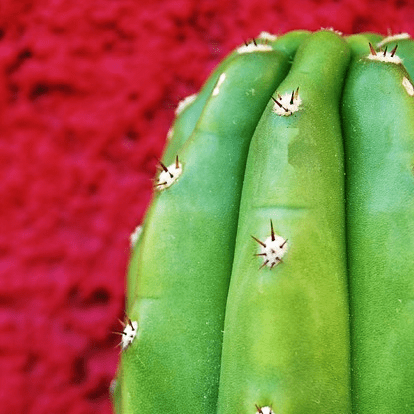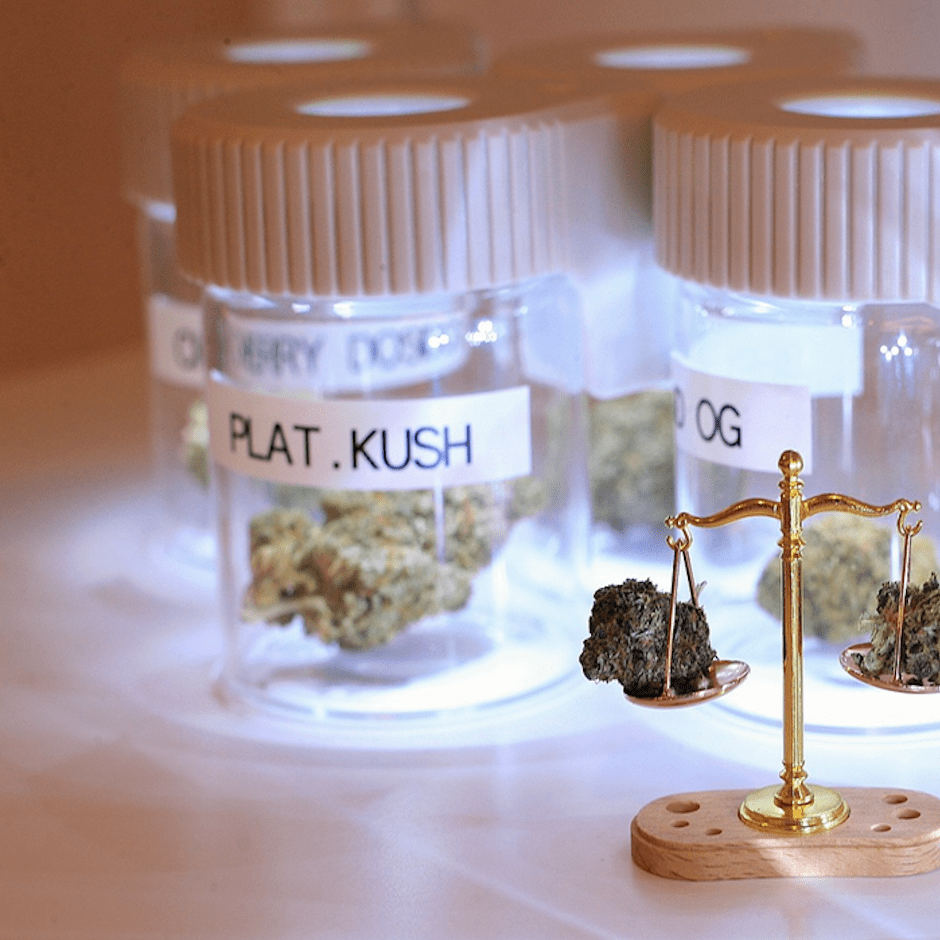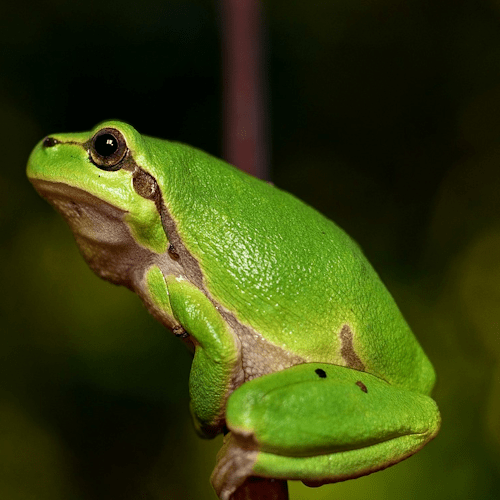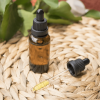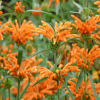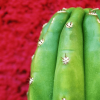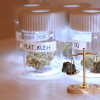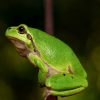Cannabidiol (or CBD) is one of the most popular substances of the moment. The potential of this cannabis-derived substance seems enormous, but what exactly is CBD, what does it do and what can you do with it? In this ultimate CBD guide we will try to answer as many questions as possible.
CBD is one of approximately 115 different cannabinoids found in cannabis plants. Cannabinoids, also known as phytocannabinoids, interact with your body and brain through a highly complex endocannabinoid system (ECS) likely involved in physiological and cognitive process regulation (including fertility-pregnancy, various immune system activities, appetite, moods, memory and even pain sensations). It is believed that our endocannabinoid systems produce our own “cannabinoids” known as endocannabinoids.
Cannabinoids derived from cannabis plants (phytocannabinoids), when ingested, will enhance our naturally occurring cannabinoid production and/or behave just like our internally produced cannabinoids would.
CAN CBD MAKE YOU HIGH?
No. Cannabidiol or CBD is known for its many health benefits, and CBD does not have psychoactive, “euphoric” or other mind-altering effects like THC does. CBD is commonly used as a “relaxing, but not intoxicating” and most users simply notice feelings of relaxation, calm and tranquility. In the vast majority of cases, the effects are not comparable to those of THC.
While CBD doesn’t make you “high” like THC, cannabidiol has other effects that will affect your state, so we recommend starting with very low doses, learning how CBD affects you personally and then the way you want to use CBD to adjust.
HOW DO CBD EFFECTS FEEL LIKE?
Cannabidiol (CBD) is known to make you calmer, more focused and relaxed. Most novice users report feeling more “carefree”, as if their struggles and burdens have been lifted off their shoulders, allowing users to relax and focus better without being intoxicated.
The most noticeable relaxation occurs in the muscles, as CBD loosens the tension of the muscles. Another very noticeable CBD effect could increase sleep quality and make you less tired in the morning after using CBD. You may feel more comfortable under the influence of CBD and CBD is not psychoactive, so you will never get high from taking Cannabidiol.
Other possible CBD effects are: may help with insomnia, less anxiety, less pain, neutralize personal discomfort, remove stress, disappear negative feelings, anti-inflammatory effects.
IS CBD PSYCHOACTIVE?
In the vast majority of cases, CBD shows no psychoactive effects among users.
When used in its pure form, without THC, Cannabidiol will not intoxicate you or get you high. That said, CBD can have relaxing properties, so you should evaluate yourself and don’t drive or operate heavy machinery while/after taking CBD.
WHAT IS THE ENTOURAGE EFFECT?
The entourage effect is a well-documented phenomenon that occurs when CBD is taken in combination with other cannabinoids found in cannabis plants. There are many different terpenes present in cannabis plants and when different cannabinoids are taken together with other active ingredients in cannabis/hemp plants, the effects are much more effective than taking the cannabinoids separately.
Basically, the theory is that compounds in cannabis work better when taken together and not separately. So the expectation is that you will always get better results if you take the cannabinoids together, rather than using them separately in purified form.
DO CBD PRODUCTS CONTAIN THC?
Most CBD products will be intentionally made THC-free because most CBD users are looking for relaxing properties and health benefits and don’t want the psychoactive, mind-altering effects (known as “high” or “stoned”) that THC comes with would bring.
CAN YOU MIX THC AND CBD?
Most cannabis plants naturally have a balance between these two substances, meaning that if the plant had 10% THC, it would have a comparable amount of CBD, 10% CBD. Over the past 20 years, large-scale recreational cannabis cultivation and plant breeding (crossing) has allowed us to create more and more THC-rich cannabis strains (meaning a stronger “kick” for the recreational user), but at the same time, CBD levels in most of the popular cannabis strains grown today has fallen dramatically.
Recreational cannabis strains CBD/THC could average ~15%THC/3%CBD in Europe, while in North America it could be ~25%THC/0.2%CBD. Most experienced cannabis users can confirm this with comments such as – “With super high THC strains, the high feels less natural and synthetic, instead of taking you to a cool dreamlike quiet place, you are hit with a stick and thrown into the thrown a fast elevator that doesn’t stop going up”.
In addition, the entourage effect tells us that you can expect better results when different cannabinoids are taken together in a ratio of 1/1 or a comparable ratio.
HOW LONG DOES IT TAKE FOR CBD TO WORK?
In general, you should feel the CBD (Cannabidiol) effects in your body in the first 1-5 hours. The time may be longer or shorter based on the method of intake, dose, body health, metabolism, sensitivity, body mass and many other factors.
Most experts agree that the most beneficial use of CBD can be achieved through daily consistency, meaning you need to use CBD at a steady dose for several days to feel the full spectrum of CBD effects. It is also known that different people may react differently and some may experience very noticeably strong and fast onset effects after the first use, while others may have only a mild reaction even after continuous weekly use.
That’s why we recommend starting slowly, with a low CBD dose (10-30mg per day) and only increasing consumption after monitoring/analyzing your body and your personal responses for at least a week or two.
DO ALL MARIJUANA PLANTS CONTAIN CBD?
In most cases, the vast majority of Cannabis/Hemp plants will contain most of ~115 possible cannabinoids. The biggest difference will be the concentration of these cannabinoids, which means that almost all cannabis strains will have some amount of CBD in them.
In the last 20 years, the recreational cannabis industry has focused on growing THC-rich cannabis, resulting in much higher average THC levels in most strains. In most cases, this meant that CBD levels dropped rapidly. That’s why most marijuana plants now have high THC/low CBD combinations in them.
This only started to change in the last few years, with the rise of CBD medical trials and general public opinion shifting towards the health benefits of cannabis. In most cases, the reason why there is a wave of cannabis legalization around the world has everything to do with CBD properties and nothing to do with recreational use of THC. Unfortunately, after most of the legalizations have been passed, this will have a greater impact on THC-rich recreational cannabis grow sales than on improvements and growth of the CBD industry.
WHAT ARE CANNABINOIDS?
Cannabinoids (most commonly known among 115 different others are THC and CBD) are some of the chemical compounds produced by cannabis that can easily affect our bodies. Most cannabinoids work by imitating other natural compounds (called endocannabinoids) commonly found in our bodies. Our endocannabinoid system produces naturally occurring substances that act on different receptors, which are called endocannabinoids, and they mainly affect our nerves, brain, central nervous system and immune cell functions.
(Bronnen: Szaflarski JP, Bebin EM, Cannabis, cannabidiol, and epilepsy–from receptors to clinical response. Epilepsy Behav. 2014;41:277-82 )
IS CBD THE ONLY CANNABINOID IN THE HEMP PLANT?
No, CBD is just one of ~115 different known cannabinoids commonly found in cannabis (hemp or marijuana) plants.
WHAT’S THE DIFFERENCE BETWEEN CBD AND THC?
The short answer would be: THC (tetrahydrocannabinol) is a recreational psychoactive compound that gets you high and CBD (cannabidiol) is a calming non-toxic compound known for its health benefits that won’t get you high.
But everything in nature has to be more complex than that. CBD and THC are known as the “main balancing parts of cannabis” as they are the most studied cannabinoids (among ~115 others) in any hemp/cannabis plant. Why balancing parts? CBD is known to reduce the side effects of THC and both compounds are known to be balanced in most naturally occurring cannabis strains meaning that as THC levels rise in a crossing process, CBD levels fall and vice versa.
That means CBD and THC have multiple levels of intricate compounds/correlations that scientists are just beginning to discover and understand how these compounds work together.
WHAT’S THE DIFFERENCE BETWEEN HEMP AND MARIJUANA?
From a purely technical perspective, both hemp and marijuana are just variants of the Cannabis Sativa plant. In a much deeper sense, they have significant differences between the two: the most important of those differences is usually that the hemp plants are considered industrial cannabis plants with no more than 0.2-0.3% THC content. That makes them an agricultural resource for many industries, without the possibility of recreational use. Most countries have strict rules and regulations regarding what is considered marijuana and what is considered hemp. Usually the rules have everything to do with the THC content in the plant.
The main difference between hemp and cannabis (marijuana) is usually only the concentration of cannabinoids (THC, CBD, and similar). Hemp is a term used to describe the cannabis plant with a very low THC/CBD content (usually below 0.2-0.3%).
This allows some companies to easily grow certain strains of cannabis and use it for multiple industrial purposes.
IS CBD OIL AND HEMP OIL THE SAME?
“ CBD oil ” means that “this oil has CBD (Cannabidiol) as one of the active ingredients”. In rare cases, for health, the oil portion can be taken from another plant (coconut oil or other) and the CBD can be added in its pure form to create a unique supplement.
Now “hemp oil” (or hemp seed oil) means this is “oil made from hemp seed”, that means there is no or almost no CBD in that oil, but it has most of the compounds found in cannabis seeds.
Both types of oils can have their own unique potential health benefits.
WHAT ARE TERPENES?
Terpenes are some of the essential oils found in many plants. Cannabis plants usually contain more than 200 different terpenes. Terpenes are oils that give cannabis that unique taste and different aromas, so the terpene composition varies from strain to strain. In addition, different terpenes have different beneficial effects and work in synergy with different cannabinoids (such as CBD, THC and at least 115 others). The synergistic ability to work together in unique relationships is commonly referred to as “The Entourage Effect”.
Cannabis terpenes are another type of chemical compound found in all cannabis plants. Cannabis terpenes provide the smell of the cannabis plant. They are aromatic oils that give cannabis plants their distinctive colors and scents.
In combination with different cannabinoids, terpenes can promote different effects in users. There are over 100 different cannabis terpenes.
CAN I GIVE MY PET CBD (DOG, CAT, ETC.)?
There are special CBD products that are made especially for cats or dogs. We do not recommend giving your pet products “made for human consumption” because your pet’s body mass is several times lower than your own. That makes it very difficult to choose the right dose. Before experimenting with CBD for your pet, do extensive research.
WHAT ARE THE HEALTH BENEFITS OF USING CBD?
With the scientific community putting out new studies of CBD’s health benefits every day, most clickbait media have come to embrace CBD as an “all-in-one cure” for the past decade, while some manufacturers are simultaneously using the vague restrictions surrounding cannabis to their advantage. and started marketing CBD with unproven claims.
That could help legalize/decriminalize the compound around the world, but there are only a few fully medically proven truths when it comes to CBD. Most of the bigger claims, even when preclinical studies show some real signs of major health benefits, are still waiting for the clinical studies to be proven by the scientific community.
Known CBD effects can be: increased alertness in lower doses, a sedative in higher doses. CBD in general is known to reduce pain, relax muscles, have an anti-inflammatory effect, counteract nausea/vomiting, reduce anxiety/depression, counteract psychotic thoughts, have antioxidant, anticonvulsant, neuroprotective, and may even have an anti-tumor effect. to have.
CAN YOU TAKE AN OVERDOSE OF CBD?
Even at super large doses (1.5g/day), studies of chronic CBD use have successfully shown that there are no serious health risks to human life.
IS THE USE OF CBD SAFE?
There have been clinical studies on chronic CBD use that tell us that even super high doses of CBD (1.5g/day) show no negative effects on humans and CBD is well tolerated by humans even in very large doses.
(Bronnen: World Health Organization, WHO Expert Committee on Drug Dependence, Thirty-ninth Meeting Geneva, 6-10 November 2017.
Safety and side effects of cannabidiol (NCBI/NIH). Curr Drug Saf. 2011 Sep 1;6(4):237-49. Safety and side effects of cannabidiol, a constituent of Cannabis sativa. [ PMC free article ] [ PubMed ] Bergamaschi MM(1), Queiroz RH, Zuardi AW, Crippa JA)
WHAT DISEASES CAN BE TREATED WITH CBD?
There is some evidence that therapeutic use of Cannabidiol (CBD) may be used successfully against:
- Obesity
- Anorexia
- Emesis
- Pain
- Sclerosis
- Epilepsy
- Parkinson’s disease, Alzheimer’s disease, etc.
- Bipolar disorder
- Posttraumatic stress disorder
- Depression
- Angst
- Insomnia
- Schizophrenia
- Asthma, cardiovascular disease, glaucoma
The Smartific team cannot be held responsible for any claims regarding the medical properties and actual health benefits of the said substances. Before experimenting with substances for healing properties, always consult your doctor and discuss the potential risks of CBD use.
DOES CBD CAUSE SIDE EFFECTS?
In most cases, CBD is well tolerated by most users, although everyone is different, and in a small number of cases, CBD can have side effects such as diarrhea, loss of appetite, drowsiness, fatigue, dry mouth and others. Most importantly, CBD can interact with any other medications you are taking, so always consult a doctor before taking any CBD supplements.
We always recommend starting with the smallest possible dose and stopping use immediately if any side effects are noticed by the user.
WHAT IS THE EFFECT OF CBD ON APPETITE?
CBD is unlikely to affect your appetite, although on rare occasions there are users who report an increase or decrease in appetite. If you are taking CBD as a daily supplement and start to feel changes in your appetite, we recommend that you discuss this with your doctor.
CAN I TAKE CBD AT WORK?
In general, CBD can improve your concentration and reduce stress, making it a common supplement for many work-related problems. Plus, CBD won’t get you high, so there’s no risk of getting intoxicated. With that being said, because CBD can affect different people differently, we don’t recommend taking CBD on hard work days, especially as CBD can make you drowsy in certain circumstances and affect your ability to drive or operate heavy machinery.
In general, most users are fine after using CBD on weekdays, but that is a personal choice and should only be done after some personal experimentation (on doses and effects) and research.
CBD is a non-psychoactive substance, so the potential harm is kept to a minimum.
CAN YOU USE CBD IF YOU ARE TAKING PRESCRIPTION MEDICATIONS?
You should consult your doctor if you plan to use CBD with other medications, as CBD can affect several other substances when taken together.
WHAT IS THE BEST WAY TO TAKE CBD?
The most simple and uncomplicated way is to take it orally, in the form of an oil drop. Some other ways could be vaping or smoking it or ingesting pure CBD crystals through your diet.
HOW MUCH CBD CAN I TAKE?
Even though you can’t overdose on CBD, the normal CBD dosage ranges between 10 and 100mg per day, with 10mg being the minimum dose for the day, and 100mg a super high dose that can cause side effects in some users.
Clinical studies have successfully tested chronic CBD doses of up to 1500mg per day and found that there is no noticeable direct harm even with severe chronic CBD use like this.
HOW MUCH CBD SHOULD I TAKE?
Our recommended starting dose is 10-30 mg of Cannabidiol (CBD) per day. You can increase the intake after a few weeks of daily use if you do not notice any negative side effects.
HOW DO CANNABINOIDS WORK?
Basically, most cannabinoids work by lowering the activity of presynaptic neurons, limiting the amount of neurotransmitters (say, dopamine) that are released. Basically, cannabinoids affect the way various chemical messages are sent, received and processed by cells in our body.
WHAT IS THE ENDOCANNABINOID SYSTEM?
The endocannabinoid system primarily acts as a homeostasis regulator in your body and its main purpose is to maintain balance. Our bodies also produce our own “cannabinoids” known as endocannabinoids. The most well-known endocannabinoids are anandamide and 2-AG (2-arachidonoylglycerol). When you ingest plant-derived cannabinoids like CBD/THC known as “phytocannabinoids” yourself, these cannabinoids can activate the same receptors in your body. Plus, due to their composition, they can have similar or even stronger effects than your naturally built-up endocannabinoids.
In short, THC and CBD interact with multiple human receptors such as CB1/CB2 (and at least 65 others) and activate them just like (or more strongly) any naturally produced endocannabinoids you would already have in your body.
ARE ENDOCANNABINOIDS NEUROTRANSMITTERS?
Yes, endocannabinoids are lipid-based neurotransmitters that tend to bind with cannabinoid receptors (CBRs).
WHAT IS THE PURPOSE OF THE ENDOCANNABINOID SYSTEM?
Although it is still in the preliminary research stage, the endocannabinoid system is believed to be involved in regulating cognitive and physiological processes, as well as having various functions in our immune system, appetite, pain sensations, mood and even memory.
WHAT ARE CB1 RECEPTORS?
CB1 is one of 65 different receptors found in our “endocannabinoid” systems. CB1 receptors are usually located in the central nervous system (spinal cord and our brain).
The endocannabinoid system is one of the most important parts of our neuroimmunoendocrine network. This system sends and receives chemical messages and it affects many aspects of human health, including mood, pain, inflammation, stress response and immune function.
WHAT ARE CB2 RECEPTORS?
CB2 is another receptor among 65 different known endocannabinoid system receptors found in our body. CB1 receptors are located in our immune system.
Like CB1, CB2 is part of a highly complex endocannabinoid system (part of our neuroimmunoendocrine network). The endocannabinoid system is known as a homeostasis regulator in the body, so the main purpose of the endocannabinoid system is to maintain balance in your body.
CAN ANYONE BUY CBD OIL?
You must be over 18 years old to purchase products in the Smartific store.
HOW TO CHOOSE THE BEST CBD OIL?
Think about potency and strength: the higher the strength, the harder it is to accurately monitor your daily CBD intake. Consider the taste. If you think you don’t like the bitter taste of cannabis/hemp oil, consider taking CBD capsules instead of the oil.
If you plan to vape/smoke the CBD, consider getting pure CBD crystals instead of oil.
HOW DO I KNOW THAT THERE IS CBD IN THE PRODUCT I BUY?
All our CBD products are produced in the Netherlands, where cannabis has been legal for years. The CBD industry is growing fast here and all the products we have have exactly the amounts of CBD as stated on the packaging/product description.
DOES CBD OIL WORK?
Yes, CBD works on most users, some of them reporting a very mild and others reporting a moderately strong relaxing effect. It can all depend on the user and the dose.
IS IT SAFE TO BUY CBD ONLINE?
CBD is legal in the Netherlands, therefore the quality of CBD we produce cannot be matched by some other EU CBD producers. From a legal perspective, you should inform yourself about the legality of CBD in your country of residence.
HOW DO YOU CHOOSE A CBD PRODUCT?
The most common factors are: the way you plan to use CBD (vape/smoke, oral, edibles), CBD strength (based on the dosage you plan to take each day), taste factors (do you of the cannabis taste or not?) in addition to some other factors such as: how rich the CBD product is (does it only have pure CBD or also terpenes and other cannabinoids?).
WHAT IS THE DIFFERENCE BETWEEN ISOLATED CBD OIL AND WHOLE VEGETABLE OR FULL-SPECTRUM CBD OIL?
Isolated CBD is just pure CBD filtered to have no other compounds that the cannabis plant has (terpenes, cannabinoids, etc.), full spectrum CBD oil usually has multiple different cannabinoids (such as CBG, CBN, etc.) in addition to many other ingredients that have naturally grown cannabis plants.
It is claimed that when taken with other cannabinoids, CBD effects are richer and the compound becomes more potent. This theory is called “The Entourage Effect”.
WHAT ARE HIGH CBD STRAINS?
The most famous CBD strain is certainly Charlotte’s Web, but there are other CBD-rich cannabis strains that are loved by CBD enthusiasts: ACDC, Harley Quinn, Harle-Tsu, Ringo’s Gift and many others. Most seedbanks today have a separate selection of CBD-rich strains.
IS CBD DOMINANT CANNABIS STRAIN BETTER MEDICINE THAN A CANNABIS STRAIN WITH 50% CBD AND 50% THC MIX?
Theoretically, based on the “The Entourage Effect”. the answer should be no. But the big side effect of this method would be that you get high because of the THC. That’s not what the average CBD user wants. It all depends on your points of view. In most modern cases the answer should be yes, CBD dominant cannabis strains should be more useful when used as medicine, compared to THC rich cannabis strains.
IS CBD LEGAL?
CBD is legal in the Netherlands, where our products come from. You should inform yourself about the legality of CBD in the country where you live.
CAN YOU TAKE CBD OIL THROUGH THE SECURITY AT AIRPORTS?
That depends on the local legislation of both countries, the country you come from and the country you are traveling to.
IS CBD A CLASS A DRUGS?
CBD is legal in the Netherlands, where our products come from. You should inform yourself about the legality of CBD in your country of residence.
DOES CBD INFLUENCE THE RESULTS OF A DRUG TEST?
In most known cases, pure CBD use, without the use of THC, will not affect most common drug tests. However, you should inform yourself about the testing process and find out more about the substance you have been tested for.
